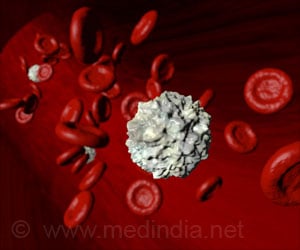Discover the myriad health benefits of your daily coffee, from antioxidants to mental alertness and more. Dive into the scientific perks of every brew!
- Coffee is a potent source of antioxidants, combating free radicals in the body
- Regular coffee consumption can reduce risks of Alzheimer's, Parkinson's, and type 2 diabetes
- Apart from boosting mental alertness, coffee supports heart, liver health, and physical performance
Coffee is a Powerhouse of Antioxidants
Coffee is loaded with antioxidants, which combat free radicals in the body. These antioxidants, notably hydrocinnamic acids and polyphenols, help to reduce oxidative stress and inflammation (1✔ ✔Trusted SourceAntioxidant property of coffee components: assessment of methods that define mechanisms of action
Go to source). In fact, for many individuals, coffee is the single largest source of antioxidants in their diet, outperforming fruits and vegetables combined.
Coffee Protects Against Neurodegenerative Diseases
Research consistently indicates that regular coffee drinkers are less likely to develop Alzheimer's andCoffee for Cardioprotection and Longevity
Go to source).
Coffee Reduces Risk of Type 2 Diabetes
Several observational studies have associated coffee consumption with a lowered risk of type 2 diabetes (3✔ ✔Trusted SourceCoffee and Lower Risk of Type 2 Diabetes: Arguments for a Causal Relationship
Go to source). This is believed to be due to ingredients in coffee that affect levels of hormones, which in turn, can influence insulin function.
Coffee Promotes Mental Alertness
Caffeine, the primary psychoactive substance in coffee, acts as a stimulant that can improve various aspects of brain function, including mood, vigilance, reaction times, and memory. It blocks adenosine, an inhibitory neurotransmitter, leading to heightened neuronal firing and the release of neurotransmitters like dopamine and norepinephrine (4✔ ✔Trusted SourceCaffeine and the central nervous system: mechanisms of action, biochemical, metabolic and psychostimulant effects
Go to source).
Coffee Supports Heart Health
Moderate coffee consumption can be linked to a lower risk of coronary heart disease (5✔ ✔Trusted SourceLong-term coffee consumption and risk of cardiovascular disease: a systematic review and a dose-response meta-analysis of prospective cohort studies
Go to source). While high consumption may elevate blood pressure momentarily, long-term studies don't support the idea that coffee increases the risk of heart disease or stroke.
Coffee is Beneficial for Liver Health
Coffee appears to be protective against certain liver disorders, lowering the risk of liver cancer by up to 40% and cirrhosis by as much as 80%. The exact cause of this protection is not clear but could be linked to coffee’s ability to lower concentrations of liver enzymes in the blood (6✔ ✔Trusted SourceCoffee and liver health
Go to source).
Coffee Enhances Physical Performance
Caffeine can enhance physical performance by breaking down body fat and making fatty acids available for energy production. Additionally, it can increase adrenaline levels, amplifying the performance of athletes or those just looking for a performance boost in their daily activities (7✔ ✔Trusted SourceIs Coffee a Useful Source of Caffeine Preexercise?
Go to source).
Coffee May Aid Weight Loss
Coffee can boost metabolic rate and enhance the oxidation of fatty acids. This is why caffeine is a key ingredient in many weight-loss supplements (8✔ ✔Trusted SourceIncrease from low to moderate, but not high, caffeinated coffee consumption is associated with favorable changes in body fat
Go to source).
Coffee is a Mood Enhancer and Potential Depression Fighter
There's a reason many swear by their morning cup to get the day started right! Caffeine is known to elevate mood and can be linked to a reduced risk of depression (9✔ ✔Trusted SourceCoffee and caffeine consumption and depression: A meta-analysis of observational studies
Go to source). Studies suggest that regular coffee drinkers have a 20% lower risk of depression.
Coffee is Nutrient-Rich
Beyond caffeine, coffee contains a variety of essential nutrients, including riboflavin (vitamin B2), niacin (B3), pantothenic acid (B5), manganese, potassium, magnesium, and phosphorus (10✔ ✔Trusted SourceCoffee Consumption among Adults in the United States by Demographic Variables and Purchase Location: Analyses of NHANES 2011-2016 Data
Go to source). While the percentages might appear modest, they add up with every cup consumed, contributing significantly to daily intake.
In conclusion, while coffee can boast of an impressive list of health benefits, moderation remains key. Like all foods and drinks, the health impacts of coffee are most beneficial when it's consumed as part of a balanced diet. Moreover, it's vital to consider other variables like sugar, cream, or flavorings that might be added to your cup. A sugary latte might offer the caffeine punch, but it might negate some of the coffee's beneficial effects.
Furthermore, individual reactions to coffee vary. While some can relish multiple cups daily without issues, others might need to limit their intake due to sensitivities or underlying health conditions. As always, it’s advisable to consult with a healthcare professional about any significant dietary changes.
So, the next time you sip on your coffee, savor not only its rich taste but also the myriad benefits brewing in your cup!
References:
- Antioxidant property of coffee components: assessment of methods that define mechanisms of action - (https://pubmed.ncbi.nlm.nih.gov/25415479/)
- Coffee for Cardioprotection and Longevity - (https://pubmed.ncbi.nlm.nih.gov/29474816/)
- Coffee and Lower Risk of Type 2 Diabetes: Arguments for a Causal Relationship - (https://pubmed.ncbi.nlm.nih.gov/33807132/)
- Caffeine and the central nervous system: mechanisms of action, biochemical, metabolic and psychostimulant effects - (https://pubmed.ncbi.nlm.nih.gov/1356551/)
- Long-term coffee consumption and risk of cardiovascular disease: a systematic review and a dose-response meta-analysis of prospective cohort studies - (https://pubmed.ncbi.nlm.nih.gov/24201300/)
- Coffee and liver health - (https://pubmed.ncbi.nlm.nih.gov/25291138/)
- Is Coffee a Useful Source of Caffeine Preexercise? - (https://pubmed.ncbi.nlm.nih.gov/31629349/)
- Increase from low to moderate, but not high, caffeinated coffee consumption is associated with favorable changes in body fat - (https://europepmc.org/article/MED/36870243)
- Coffee and caffeine consumption and depression: A meta-analysis of observational studies - (https://pubmed.ncbi.nlm.nih.gov/26339067/)
- Coffee Consumption among Adults in the United States by Demographic Variables and Purchase Location: Analyses of NHANES 2011-2016 Data - (https://pubmed.ncbi.nlm.nih.gov/32824298/)
Source-Medindia














